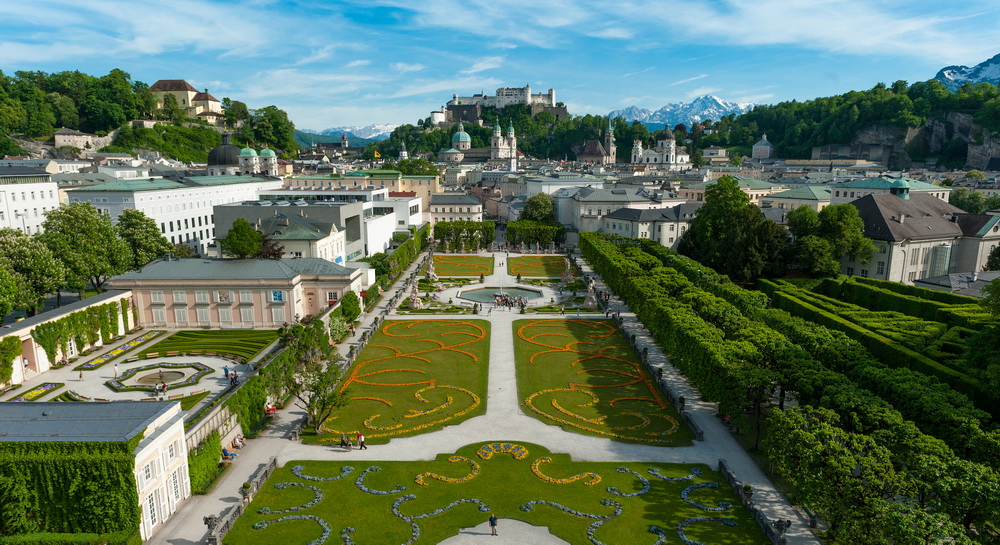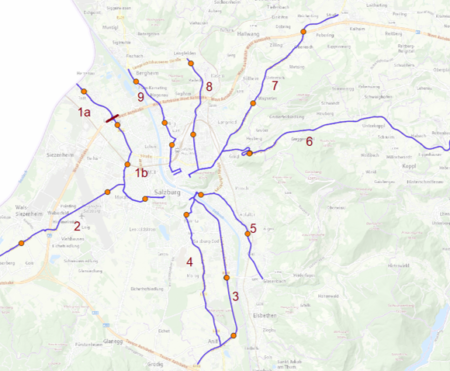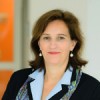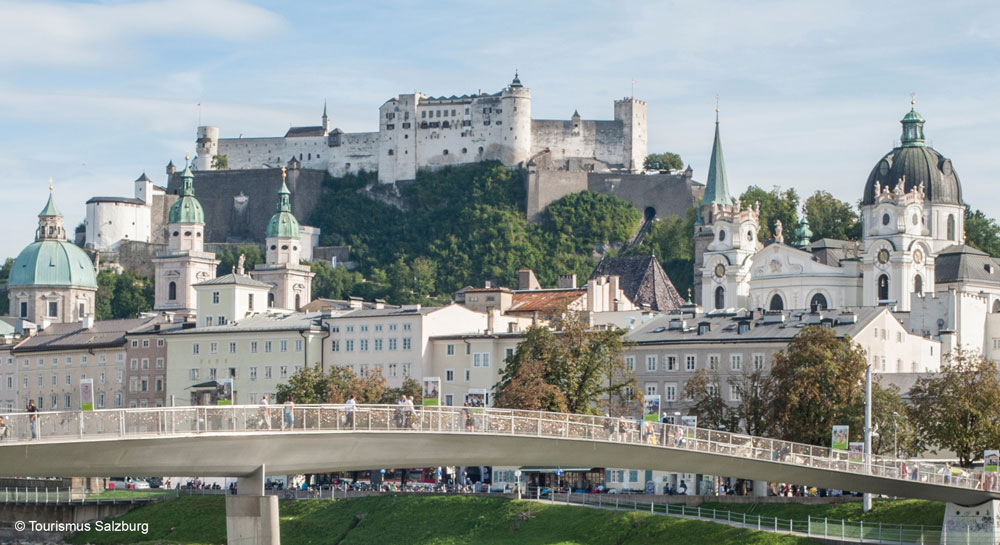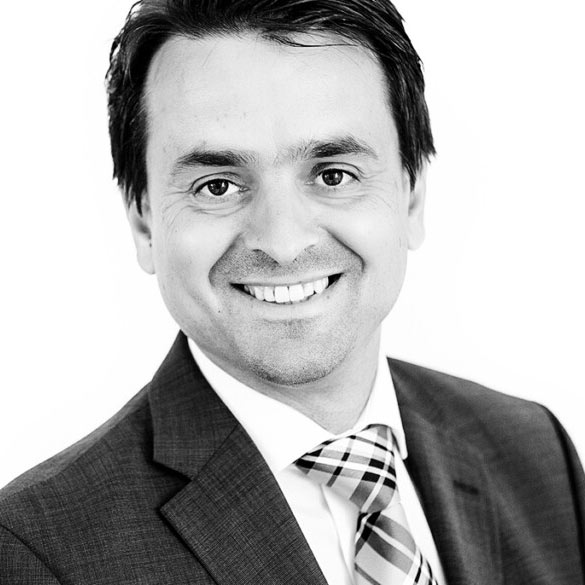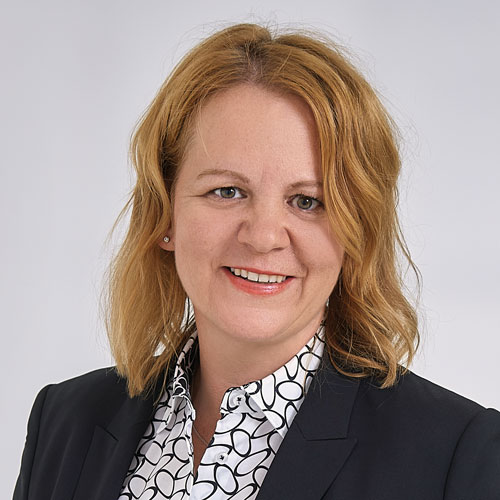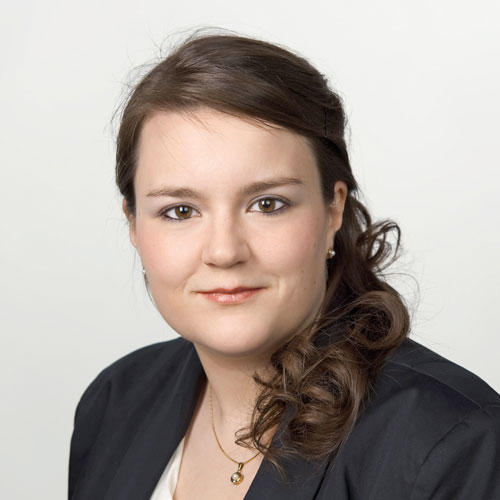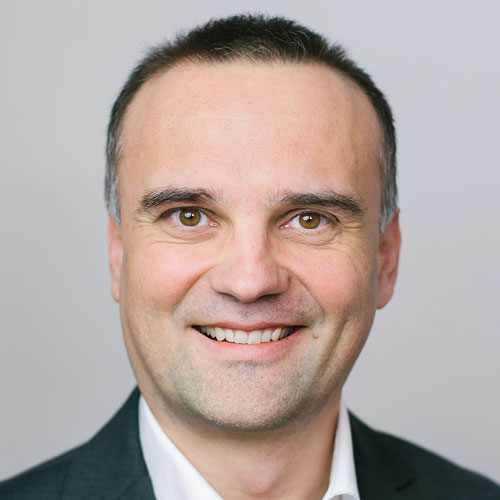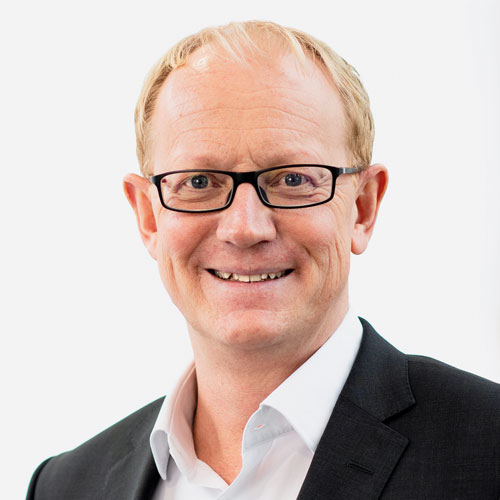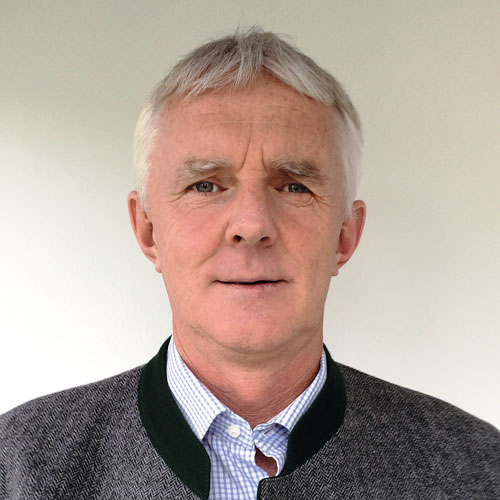Data-based visitor flow analyses are the basis for smart steering measures in tourism. Salzburg Research is creating a system for the automatic monitoring of movement flows in Salzburg’s Old Town and is developing, simulating and evaluating incentive systems for targeted visitor guidance measures.
Challenge
Salzburg’s Old Town is an extremely popular destination for tourists from all over the world. Since the most popular sights are located in the Old Town, “ant routes” are created that are increasingly frequented. For residents, a feeling of congestion is perceptible along these routes, as well as in some cases in individual tourist traffic. Solutions are being sought to establish a visitor management system that provides greater comfort for visitors and residents. The challenge is to manage tourism in such a way that the added value for Salzburg can continue to be strengthened, but the city as an economic and living space is not negatively affected.
Solution
Salzburg Research, together with the AIT -Austrian Institute of Technology – has been supporting Tourismus Salzburg GmbH and the Altstadtverband Salzburg for many years as a competence partner for the evaluation, planning and accompanying implementation of smart visitor management.
Multiple data sources are used for the visitor flow analyses: Traffic counting sensors on streets, usage data from the large parking garages, usage figures for the Old Town Shuttle, usage data from the Salzburg Card, counting sensors for passers-by installed in the Old Town, WLAN scanners, guest figures from the overnight stay statistics, weather data from the Central Institute for Meteorology and Geodynamics, etc. These data are automated throughout. These data are continuously and automatically collected, which enables cost-effective data analyses in long time series. Data scientists at Salzburg Research and at the AIT can thus discover patterns and influencing variables in the behaviour of visitors, which in turn enables the development of forecasting models for future visitor flows.
Based on these visitor flow analyses, Salzburg Research develops recommendations for interventions and incentives. Planned visitor flow management measures can be simulated and evaluated in the course of real implementation in the field. These real-life measurements of effectiveness are fed back to the forecasting models and simulations, making the visitor flow analyses and steering measures increasingly well-founded – similar to a learning system.
Benefit
Although the Corona pandemic has temporarily reduced the number of visitors, this offers an ideal opportunity to systematically monitor the renewed increase in tourism and to steer it in the desired sustainable direction.
The visitor flow analysis clarifies the question under which circumstances which behaviour occurs in the visitor flows and what consequences it has. From this, forecasts for expected future movement flows can be derived, which in turn enables forward-looking interventions that can be set before so-called overtourism phenomena occur. Problems with exceeding tolerable capacities are thus avoided before they even arise. This creates a threefold win-win-win situation for the benefit of locals, tourists and tourism businesses. Salzburg Research serves its clients with behavioural insights strategies that do not work with constraints, bans or punishments, but rather analyse the reason for the behaviour and intervene accordingly at an early stage. Nudging methods that are used work, among other things, with adjustments of the environment, the situation and the conspicuousness of relevant variables or the influencing of psychological factors.
Our Offer:
